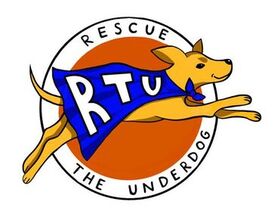|
A puppy-proofed home is a pet-safe home whatever the age of your new dog. Before those front paws cross your threshold for the first time, your home must be a health zone, not a hazard zone.
Begin the process of pet-proofing by walking through your home, room by room, searching methodically for things a dog might climb, knock over or pull down, and either secure, remove or store them. Keep all trashcans behind closed and latched doors and wastebaskets (covered if possible) out of sight. Ensure that all heating/air vents have covers. Snap specially designed plastic caps over electrical outlets. Tie electrical cords together and tuck them out of reach. Install childproof latches to keep inquisitive paws from prying open cabinet doors in kitchens and bathrooms, and always keep the toilet lids closed. In bedrooms, keep all medications, lotions and cosmetics off accessible surfaces such as bedside tables. Store collections – from buttons, bottle caps and coins to matchboxes, marbles and potpourri – on high shelves, while keeping breakables on low surfaces to an absolute minimum. Most chemicals are hazardous to dogs and should be replaced, wherever possible, with natural, non-toxic products. A partial list of toxic chemicals includes: antifreeze, bleach, drain cleaner, household cleaners and detergents, glue, nail polish and polish remover, paint, varnish and sealants, pesticides and rat poison. Many indoor plants, however pretty, can prove poisonous to a dog. Since dogs are, by nature, explorers – not to mention lickers and chewers – protecting them from harm is essential. A partial list of such indoor plants includes: aloe, amaryllis, asparagus fern, azalea and rhododendron, chrysanthemum, corn plant, cyclamen, Dieffenbachia, elephant ear, jade plant, kalanchoe, lilies, peace lily, philodendron, pothos, Sago palm, schefflera and yew. Seemingly harmless “people” food can potentially be lethal to dogs. A partial list of these includes: alcohol, avocado, chocolate, caffeinated items, fruit pits and seeds, grapes and raisins, macadamia nuts, onions, and all products containing the artificial sweetener, Xylitol. Although prevention is the key to your new dog’s well being, accidents can and do happen. The truly protective pet parents are prepared pet parents and know to keep a list of vital numbers handy: Veterinarian 24-hour veterinary emergency clinic ASPCA Poison Control: 1-888-426-4435 Pet Poison Help Line: 1-800-213-6680 Hopefully, these are numbers you’ll never use. And as long as you remain vigilant, both you and your new best friend can rest, assured.
1 Comment
7/6/2022 07:49:07 pm
Puppy-proofing being a chance to help your house stay completely safe from top to bottom could be exactly what we need to look into. My son has always wanted a pet dog, so I can see how rowdy things can get when we finally adopt one. To make sure both the dog and my son stay safe, I'll start puppy-proofing the place before we look around for any pet stores we can visit.
Reply
Leave a Reply. |
AuthorNOMI BERGER Archives
April 2022
Categories |

 RSS Feed
RSS Feed